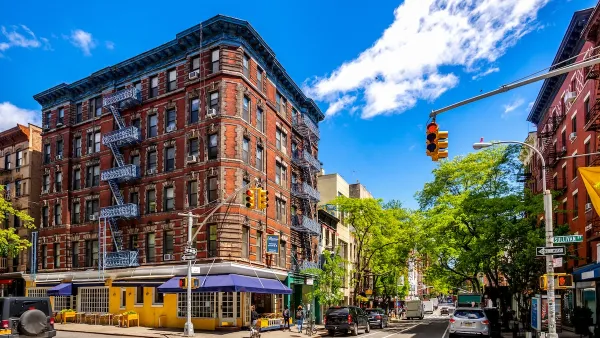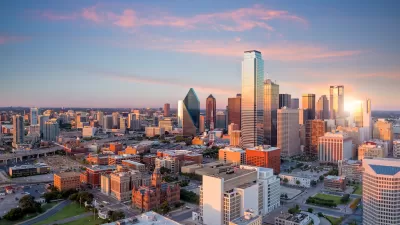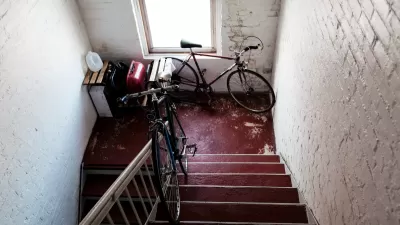Washington D.C. must wrap up its consideration of the 2015 International Building Code by July. Adoption of the IBC could enable new types of density in the nation's capital.
"Soon, it might be a lot easier and less expensive to build mid-rise buildings along transit corridors in DC," according to Payton Chung, "thanks to a 2015 update to the International Building Code."
As Chung explains Washington D.C. "currently operates under the the 2012 version of the IBC, but will soon start reviewing the 2015 code for formal adoption." The kicker about the 2015 code is that it allows greater size for buildings made of light-framed buildings, of wood or steel, which are much cheaper than heavy-framed structures.
According to Chung, the updated version of the code allows buildings a compromise, "with a taller 'podium' of concrete framing." That construction type will allow developers to increase the area of the building by 23 percent while only increasing cost by 26 percent. Under the 2012 version of the code, an increase of 33 percent would have added 60 percent additional cost, due to the high cost of concrete.
Chung goes on to explain more of the details of the code update, with examples of how specific projects might change under the new code. One thing is clear: the new code would make it easier to build mid-rises in Washington D.C.
FULL STORY: It's about to get easier to build mid-rises in DC

Maui's Vacation Rental Debate Turns Ugly
Verbal attacks, misinformation campaigns and fistfights plague a high-stakes debate to convert thousands of vacation rentals into long-term housing.

Planetizen Federal Action Tracker
A weekly monitor of how Trump’s orders and actions are impacting planners and planning in America.

In Urban Planning, AI Prompting Could be the New Design Thinking
Creativity has long been key to great urban design. What if we see AI as our new creative partner?

King County Supportive Housing Program Offers Hope for Unhoused Residents
The county is taking a ‘Housing First’ approach that prioritizes getting people into housing, then offering wraparound supportive services.

Researchers Use AI to Get Clearer Picture of US Housing
Analysts are using artificial intelligence to supercharge their research by allowing them to comb through data faster. Though these AI tools can be error prone, they save time and housing researchers are optimistic about the future.

Making Shared Micromobility More Inclusive
Cities and shared mobility system operators can do more to include people with disabilities in planning and operations, per a new report.
Urban Design for Planners 1: Software Tools
This six-course series explores essential urban design concepts using open source software and equips planners with the tools they need to participate fully in the urban design process.
Planning for Universal Design
Learn the tools for implementing Universal Design in planning regulations.
planning NEXT
Appalachian Highlands Housing Partners
Mpact (founded as Rail~Volution)
City of Camden Redevelopment Agency
City of Astoria
City of Portland
City of Laramie





























